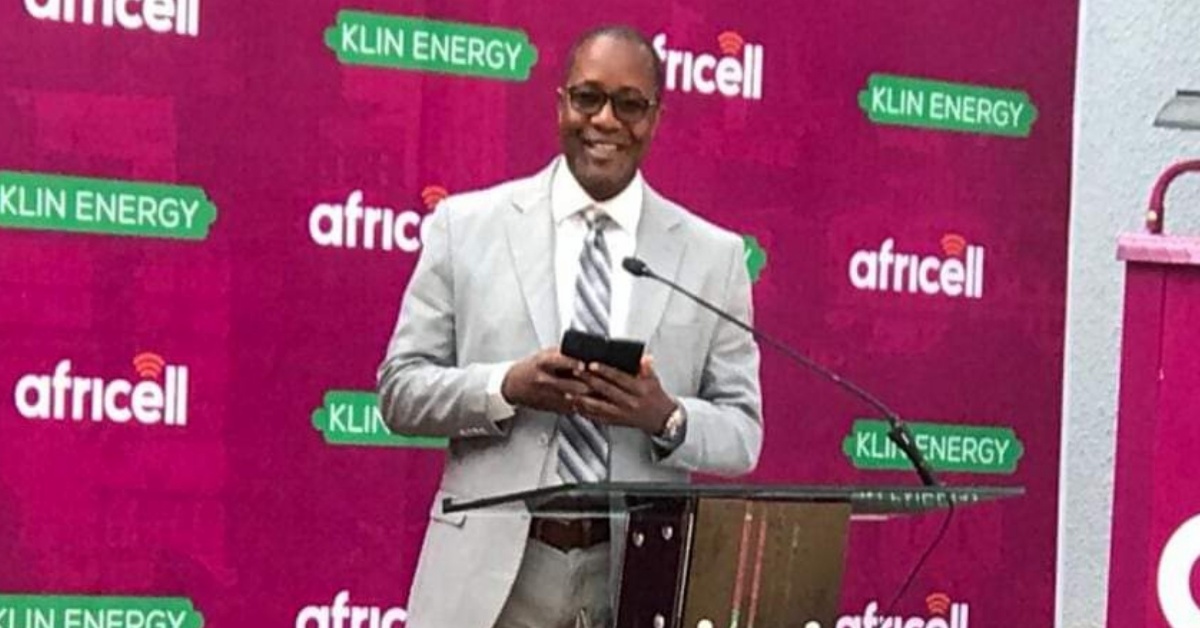The Minister of information in his keynote address during the Launch of Africell’s Klin energy initiative states that climate change is the single biggest issue facing humanity today and it’s a challenge that demands collective action.
Read the full Statement;
Colleague ministers, Group Chairman, Ziad, CEO shadi, members of the diplomatic Corp, Heads of MDAs here present,
I am quite honoured and delighted to be here this morning and also delighted to see our esteemed sector representatives and other stakeholders present here this morning after a very hectic holiday and festive period. It is exciting and encouraging to see that you are starting the new year with a high-impact event like this which is a transformative moment in how we continue to sustainably provide services to our people.
Climate Change is the single biggest issue facing humanity today. It is a challenge that demands collective action if it is to be overcome, not just by Government but by private sector players. The UN Sustainable Development Goal 7 (SDG7) calls for “affordable, reliable, sustainable and modern energy for all” by 2030.
As a government,t we believe in alternate sources of energy as a means to address the climate challenges faced in our country. The Government is promoting mini Grids,s, especially for rural and peri-urban electrification. Recently during the rollout of the National Fibre Backbone phase II of the 19 New ADM sites constructed,d all are hybrid powered with about 80% of the power required provided through solar energy solutions. Of the existing sites, we have also provided solar energy solutions to about 23 out of the 48 sites.
This government is fully committed to all international agreements and actions to develop a climate-resilient future. We have established a stand-alone Ministry of the Environment and recently reviewed and updated our Nationally Determined Contribution, National Climate Change Policy, and National Climate Change Strategy and Action Plans. We have identified environmental pressure points and we are implementing coherent mitigation and adaption strategies.
I am pleased that one of our major service providers, Africell is shifting its energy power source to renewable energy to power its operations. Solar energy is an economically feasible option that is clean and pure from the sun. These installations here will help combat greenhouse gas emissions and reduces your collective dependence on fossil fuel.
The number of Internet users increased from 0.37 million people in 2017 to about 2.67 million users as of June 2022 more than a 70% increase with a growth rate of approximately 20% YoY. At this rate,e we are expected to get an additional 1.6M in 2023 bringing out a total connected close to about 50% of our population. This will lead to an increase in demand for services equally increasing the energy footprint of our service providers.
As energy is often one of the highest operational costs for telecom companies, ranging from between 20 – 40 % of their OPEX to power their towers, fixed and mobile communications equipment, datacentres etc. especially as network equipment has become more IP-based. Africell’s desire to go green will save them huge costs in energy savings which will provide them alternative funds to expand their operations, especially in off-grid rural areas to help close the digital gap. It will also help them reduce their reliance on fuel diesel usage; expand telecom infrastructure to off-grid areas; and reduction in carbon emissions.
On a more positive note, after two years of strategic engagement with the World Bank I am pleased to announce that after signing the Financing Agreement in July this year with the World Bank, we have just on 13 December achieved the conditions precedent to its effectiveness for an IDA $50M grant for a five year Sierra Leone Digital Transformation Project in support of President Bio’s inclusive digital development agenda. Key in this project under the Broadband Market Policy and regulation, the project will support and strengthen upstream policy and regulatory environment in each stage of the broadband value chain necessary for providing reliable and affordable internet services, promoting market competitiveness and private sector investment in line with Maximizing Finance for Development (MFD) approach. The project will also support EPA in developing an e-Waste management policy and strategy to help reduce our footprint in the environment.



 Post a comment
Post a comment








